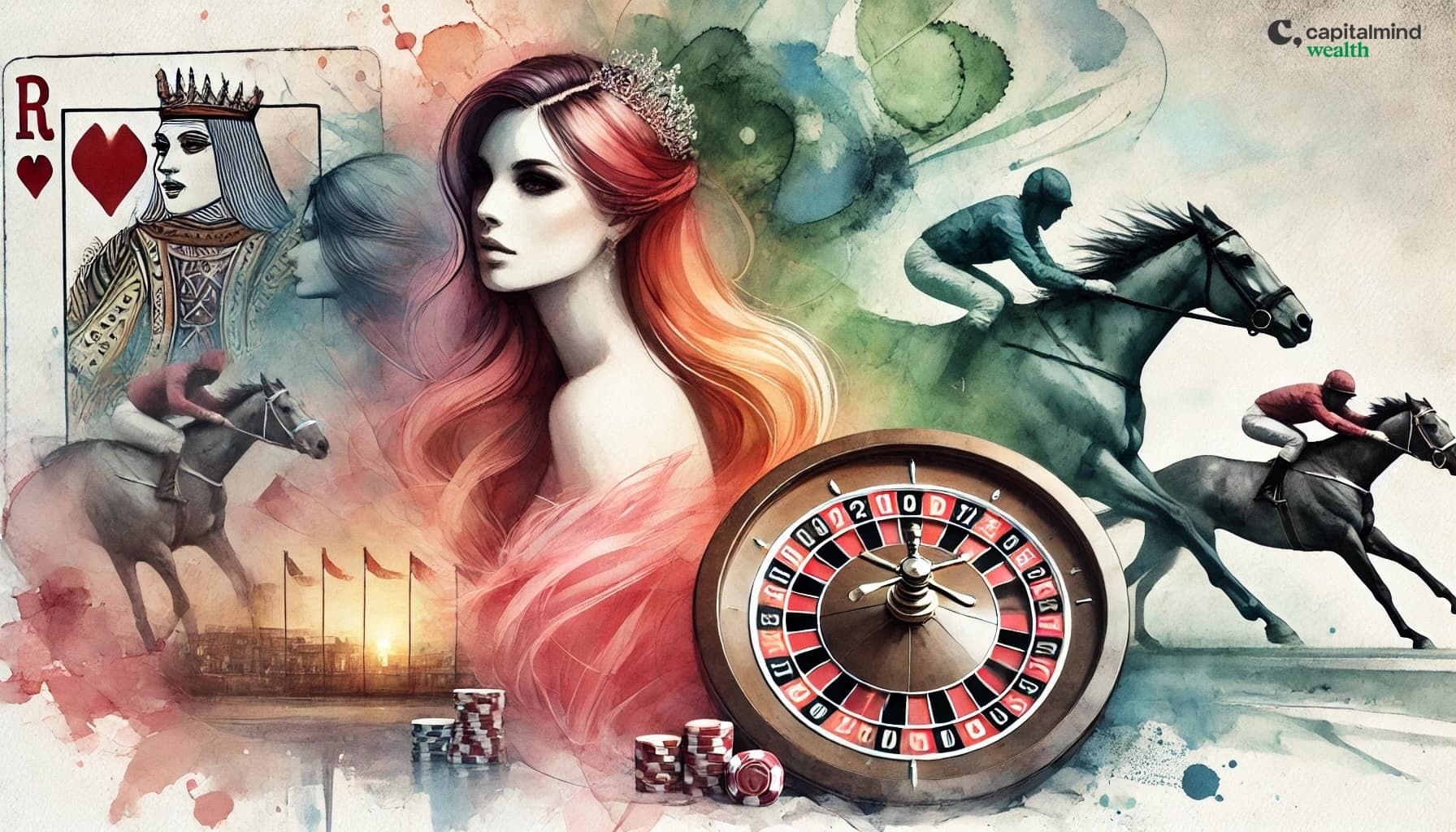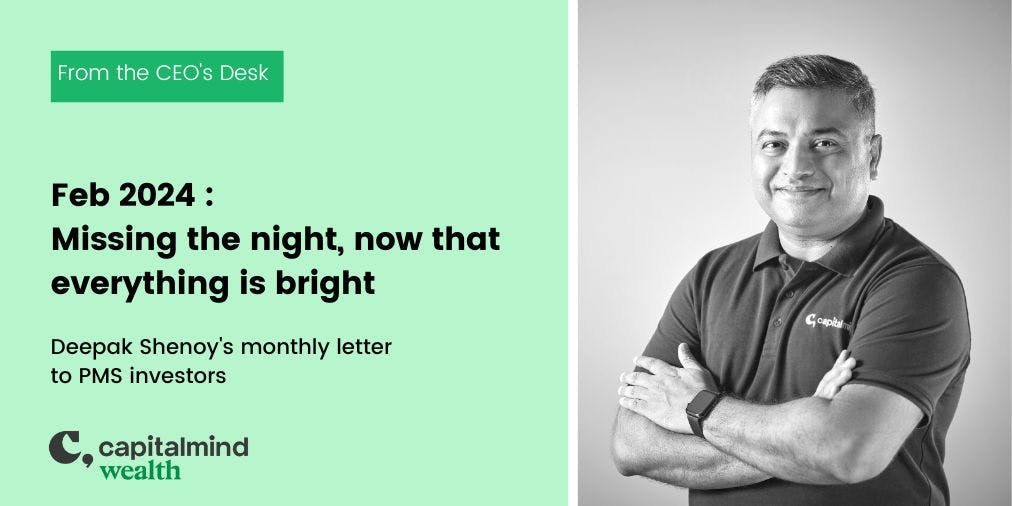(category)Commentary
The Keynesian Beauty Contest: Why expert forecasts often miss the markThe Keynesian Beauty Contest: Why expert forecasts often miss the mark
Originally published in The Economic Times, our article challenges the reliability of expert stock predictions. It delves into why even knowledgeable analysts struggle to consistently beat the market, drawing intriguing parallels between investing, Keynes' beauty contest, and horse racing. An analysis of over 2,000 expert recommendations reveals surprising insights about "buy" and "sell" calls. Discover why market perception can be as crucial as company fundamentals, and how the biggest gains often come from identifying undervalued gems before the crowd. Whether you're a novice or seasoned investor, this exploration offers fresh perspectives on navigating the market's ever-shifting landscape.
Anoop Vijaykumar•

We are constantly bombarded with expert forecasts about the stock market and individual companies that are often off the mark. Open any financial newspaper or turn on any financial news channel, and you’ll find no shortage of analysts making confident predictions about where stocks are headed.
Yet, basing your investment decisions on these forecasts is often a recipe for subpar returns. Despite their knowledge and experience, expert recommendations fail to consistently beat the market.
Our team at Capitalmind recently analyzed over 2,000 buy/sell recommendations made by institutional analysts on Nifty stocks between 2010 and 2020. Here’s what we discovered:
Analysts made four times as many “buy” calls (upgrades) as “sell” calls (downgrades).
Sixty days after the call, 63% of upgrades led to a higher price and 55% of downgrades to a lower price.
When compared to the Nifty index, only 50% of upgrades outperformed the index, and 46% of downgrades underperformed.
While analysts got the absolute direction right, more often than not, their calls had little predictive power in beating the overall market.
So why do experts struggle to make market-beating recommendations despite their knowledge and experience?
Keynesian Beauty Contests
John Maynard Keynes, the legendary British economist whose groundbreaking ideas transformed modern macroeconomics, was also a highly successful investor. He built an impressive fortune speculating in stocks, currencies, and commodities.
Keynes explained investing with an analogy to a fictional newspaper beauty contest. In this contest, readers had to pick the six prettiest faces from 100 photos. The prize went to the reader whose picks most closely matched the consensus of all readers.
Consider a simplified example: Imagine asking 1,000 investors to pick a number between 0 and 100, with the winner being the person whose number is closest to 2/3 of the average pick. If everyone picked randomly, the average would be 50, and the winning number would be 33 (2/3 of 50). But if everyone figured that out, they’d pick 33, making 22 the new winning number (2/3 of 33). This line of reasoning continues until the “rational" pick becomes 0.
But the actual winning number depends on how many people carry out this chain of reasoning and to what degree. When this experiment was conducted with over 1,000 professional investors, the average was 26, and the winning pick was 17, the number only 2% of the players had picked.
The number-guessing exercise shows that your probability of winning depends not just on your reasoning but on your ability to anticipate everyone else’s reasoning. The same applies to investing.
A company’s fundamentals and growth prospects are critical. However, the market’s perception of that company is equally important. If a company is already widely favoured, high growth expectations may already be priced in, limiting upside potential and amplifying downside risk.
Roulette versus Horse-Racing
Roulette is a popular casino game often seen in James Bond movies. It involves a wheel with 36 numbered pockets, alternately red and black. The winning number is the pocket where the ball falls after the spinning wheel comes to rest. The payout odds are fixed—35 to 1 for a single number, 11 to 1 for a row of three numbers, etc. Your and other players’ bets don’t affect the odds and the payouts.
But in horse racing, the odds constantly shift based on how many people bet on each horse. Correctly picking the favored horse yields a small payout. The biggest payout comes from correctly picking the horse few others bet on.
Investment returns work similarly. The highest return potential is found in underappreciated companies where the market’s expectations are low. Future upside becomes more limited as expectations rise.
This is why it’s so challenging for experts to consistently predict market direction or the prospects of individual stocks. They must anticipate not only a company’s results but also how the market will interpret those results compared to expectations.
Navigating the market's beauty contest
In the stock market, as in Keynes’ beauty contest, the goal is not to pick the most attractive investment but to pick the investment you believe others will soon find attractive. Expert opinions often reflect the consensus view, which is often already priced in. True opportunity lies in finding the hidden gems the crowd has yet to appreciate.
Think of investing like betting on a horse race rather than playing roulette. In roulette, the odds are fixed, but in horse racing, the odds constantly shift based on how the crowd is betting. The biggest payoffs come not from following the favorites but from astutely predicting which long shots will surge in popularity.
Ultimately, navigating the market successfully means seeing through the distorted reflections of the crowd’s ever-shifting expectations to the underlying reality. It means having the insight to pick the winner of the beauty contest before the judges make it obvious to everyone else.
So while expert opinions can provide valuable insights, they are merely one perspective in the never-ending game of anticipating the market’s next move. Savvy investors use them as a starting point for their own analysis, not as a substitute for independent thinking. In the beauty contest of the market, the real prize goes to those who can see the potential in the overlooked and underappreciated before the crowd catches on.
Recommended Reading:
The Enduring Myth of Great Companies
The Halo Effect: How Success Blinds Us in Business and Investing
The Futility of Analyst Recommendations
Speak with a Capitalmind Client Advisor about a customised investment strategy consultation to see if Capitalmind PMS / AIF fits your long-term investment needs.
Related Posts
Make your money work as hard as you do.
Talk to a Capitalmind Client AdvisorInvesting is not one size fits all
Learn more about our distinct investment strategies and how they fit into your portfolio.
Learn more about our portfoliosUnlock your wealth potential
Start your journey today



